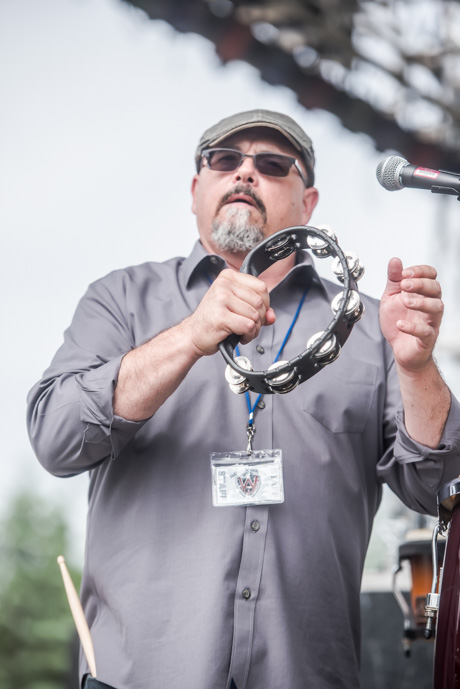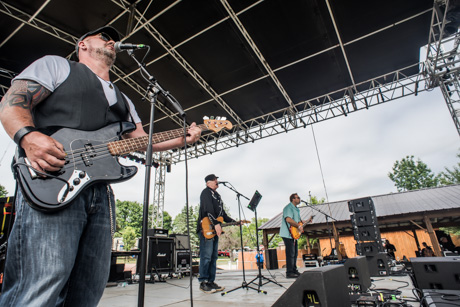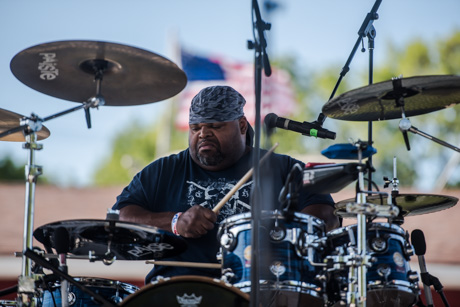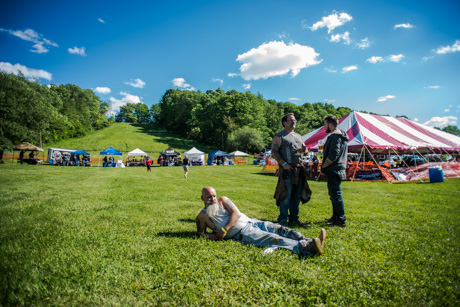The latest legal challenges to live, amplified music at Frost Ridge Campground in Le Roy have been dismissed by Judge Emilio Colaiacovo, meaning owners David and Greg Lueticke-Archbell will be able to continue their concert series, Jam at the Ridge.
Colaiacovo ruled that the Zoning Board of Appeals acted with appropriate consideration and diligence when deciding live, amplified music was a prior non-conforming use and that there was no substantive violation of the state's open meetings law when it reached that decision in February.
Attorneys for David and Amy Cleere and Scott and Betsy Collins challenged the ZBA's decision on both of those counts.
The decision seemingly concludes two years of legal fights initiated by the Cleeres and Collins and initially backed by the Town of Le Roy.
The plaintiffs maintained all along that Frost Ridge violated the town's zoning laws, because it is in an agricultural-residential district, by hosting music concerts at the campground.
The owners and their supporters countered that both live music and amplified music had been part of the operations of the campground since the 1960s, which means those uses were grandfathered in, or prior, non-conforming uses, before the R-A district was created.
The ZBA met at least twice prior to the lawsuits being filed and sided with David and Greg Lueticke-Archbell, but Judge Robert C. Noonan, who retired earlier this year, ruled that the ZBA meetings where these decisions were made were not properly noticed (a violation of the state's open meetings law), so he ordered the ZBA to hold a new public hearing.
The town board then tried to disband the ZBA -- which at the time was a joint board of the town and the village -- but Noonan barred dissolution of the ZBA until after it conducted a new hearing and issued a decision.
The ZBA met in December and collected documents and testimony at the time, but never publicly deliberated the issue and issued its decision without a public vote in February.
Colaiacovo ruled that even if these actions were a technical violation of the open meeting law, the record is clear that the ZBA members had ample information about the issue without the need for public deliberation and there was no evidence presented that the matter was discussed in a closed meeting by the board.
"The Court finds that the alleged failure to vote on its decision in public is a de minimis technical violation that, in light of the exhaustive record and consistency of the ZBA's determination that there exists a prior, non-conforming use, injunctive relief is not warranted," Colaiacovo wrote in his decision.
Colaiacovo said it was not the court's place, based on case law, to decide whether the ZBA reached the correct decision, only that the decision was reasonable and not arbitrary and capricious.
The mere fact that the plaintiffs disagree with the decision is not evidence that it is arbitrary and capricious, he said.
Courts must be careful, according to case law, not to overturn local decisions that are based on substantial evidence and are rational, he said.
The record shows the ZBA had a substantial amount of testimony and evidence to consider that seemed to back the conclusion of a prior, non-conforming use, he said.
"The ZBA held that these activities occurred to varying degrees prior to the adoption of the Town Zoning Code," Colaiacovo wrote. "The ZBA referenced Mr. (Eugene) Sinclair's testimony, which established that the defendants' actions were 'consistent with the essential character of the property as a prior, non-conforming use.' Accordingly, the ZBA, after exhausting its reasons for its determination, found that the use of the property as a campground, which permitted live and recorded music, limited food service, and allowed the use of recreational vehicles, was a prior, non-conforming use as permitted by the Town of Le Roy Zoning Code.
"Based on the foregoing," he continued, "the Court finds that the determination of the ZBA is based on substantial evidence that was made part of an extensive record. As such, because the ZBA had a rational basis to reach its decision, this Court will not disturb it."
He added, "Nothing in the record demonstrates that the ZBA reached its determination haphazardly."


































































